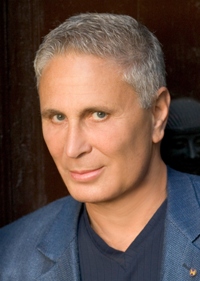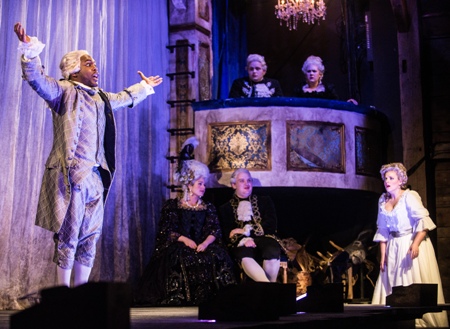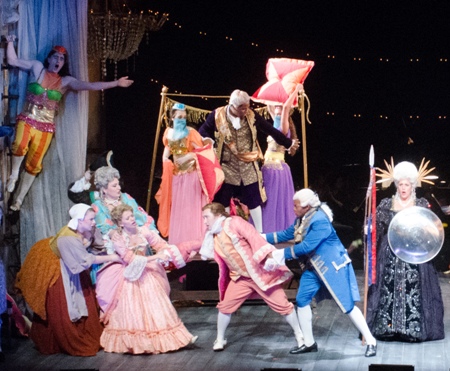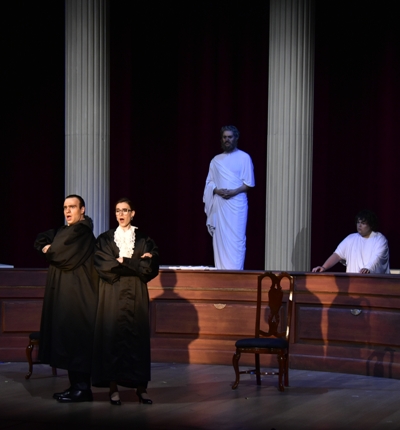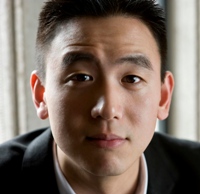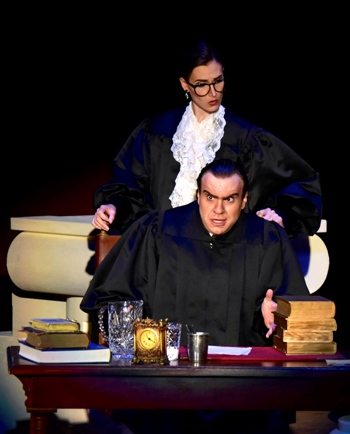When Supreme Court Justice Ruth Bader Ginsburg married a same-sex couple in May, she proudly proclaimed that she did so “by the powers vested in me by the Constitution of the United States.” A month later, when the court acknowledged that same-sex marriage was indeed a constitutional right, Justice Antonin Scalia angrily dissented. A constitutional literalist, he called the 5-4 decision “a judicial putsch” that “threatened American democracy.” After this historic head-to-head, the two justices headed off to a Washington party, where Scalia, a frustrated opera singer, reportedly belted with great gusto Bob Dylan’s “The Times They Are A-Changin,'” much to Ginsburg’s delight. That Ruth and Nino can be SCOTUS chums appears to bewilder Washington to no end. Then again, the justices share two things unexpected in our present political discourse. However much Ginsburg and Scalia may argue over interpretation, they operate on the principle that devotion to constitutional rights, not self-interest, serves society. Equally exotic in government, where art patronage has become anathema, the justices are opera buffs. Presumably, they argue about that too. This time, Ginsburg is said to be the stickler for literal convention, while Scalia has claimed he is more open-minded about modern approaches to staging. A commonplace in opera, of course, is that by penetrating psyches, music exposes the deeper bonds and inherent inner conflicts that cause enemies to become friends or friends, enemies. So it makes sense that the justices should now have their own buddy opera. Derrick Wang’s “Scalia/Ginsburg” had its premiere Saturday at the Castleton Festival, begun by conductor Lorin Maazel on his Virginia farm 70 miles west of Washington, D.C. The affectionate, hour-long one-act comic opera shared a double bill with Ravel’s “L’heure Espagnole,” and it was streamed live, which is how I viewed it. Two other things these justices share — a sense of humor and an attraction to the limelight — proved useful to Wang. An ambitious young composer who holds law and music degrees, he wrote a funny, sentimental rhymed libretto with hundreds of footnotes citing legal and operatic precedents and showed it to Scalia and Ginsburg. They’ve attended Washington National Opera together for more than two decades and have even performed together onstage with the company as supernumeraries. Wang’s was operatic bait they could hardly resist. The Supreme Court may not really be one big happy family, but Wang’s most significant accomplishment in “Scalia/Ginsburg” is his compassion for both characters. However much the justices may like each other, the vast majority of us who care about the issues and the country have use for only one of them. Saturday’s crowd at Castleton was clearly in the Ginsburg camp, applauding whenever the soprano portraying her made a biting point. Ginsburg was, moreover, in the audience, whereas Scalia was in Rome (I hope at the opera). And yet, even from a quite primitive stream with wretched sound and many computer glitches, you could sense from the laughter and the applause a kind of astonished sympathy for Scalia, whose surface bluster was revealed to be compensation for human vulnerability. But “Scalia/Ginsberg” is a lost opportunity for using opera as a means to gain profound understanding. The score is a jokey pastiche of famous bits from popular operas with little original music. Wang has an impressive facility for unlikely transitions, but after a while that began to seem too artificial, as though getting along simply meant superficial inoffensiveness instead of thinking something through and coming up with something new. The opera opens with Scalia carrying on in a clever Handelian rage aria, whereupon he is commanded by the Commentator to investigate why the justice is so unrelenting in his dissenting. As in Mozart’s “The Magic Flute,” Scalia is made to undergo three trials. But Ginsburg forces her way in, feistily contradicting all Scalia says but in total defense of her friend’s right to say it. She insists on going through the trials with him. One opera after another is referenced (as Wang points out in pedantic detail in his footnotes — the libretto was published in the Columbia Journal of Law & the Arts). The justices discover how much they really care for each other. With nods to “West Side Story,” they sing together: “We are different. We are one.” They pass their trials and are afforded the ability each night after court adjourns to remove their robes and become alter-ego opera stars. It is all sweet and touching. Soprano Ellen Wieser and tenor John Overholt are convincing both as flexible, comic opera singers and justices with inner lives, although there isn’t much Adam Cioffari could be expected to do given the thankless role of the Commentator and the ridiculous heavenly costume. Actress Maria Tucci’s straightforward production didn’t do much to remove “Scalia/Ginsburg” from seeming more like a revue or a situation comedy than an opera. Maybe if Scalia had been on hand, he could have dissented on the side of operatic adventure.
Salvatore Percacciolo, a young Italian protégé of the late Maazel, conducted a lively performance.
The sweetness and caring and considered devotion to ideals are in such short supply in Washington these days that in the end “Scalia/Ginsburg” feels like a gift. Earlier in the day, Ginsburg presented a program (also streamed) called “Law in Opera,” in which she used her dry wit to introduce opera scenes that revolved around judicial issues and were sung by talented young singers. She concluded by praising the Supreme Court for not demonstrating “the animosity that currently moves the other branches of our government.” Could we please make it a constitutional requirement that no one can be sworn into office in the White House or Congress without having first seen “Scalia/Ginsburg”? mark.swed@latimes.com
read complete post on http://www.latimes.com/entertainment/arts/la-et-cm-scalia-ginsburg-notebook-20150713-column.html

